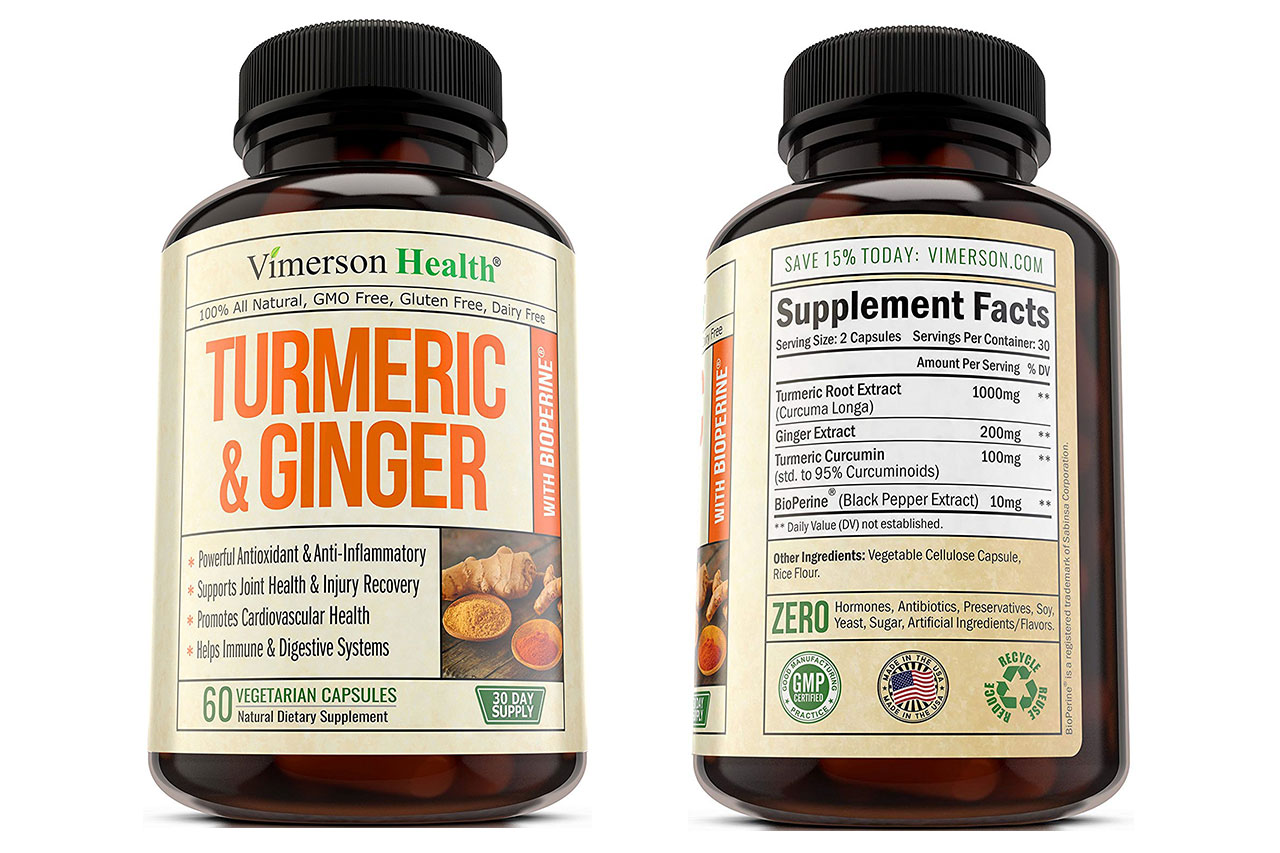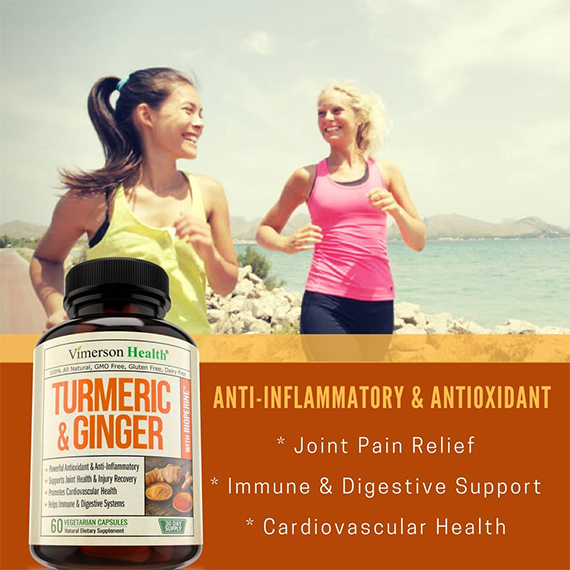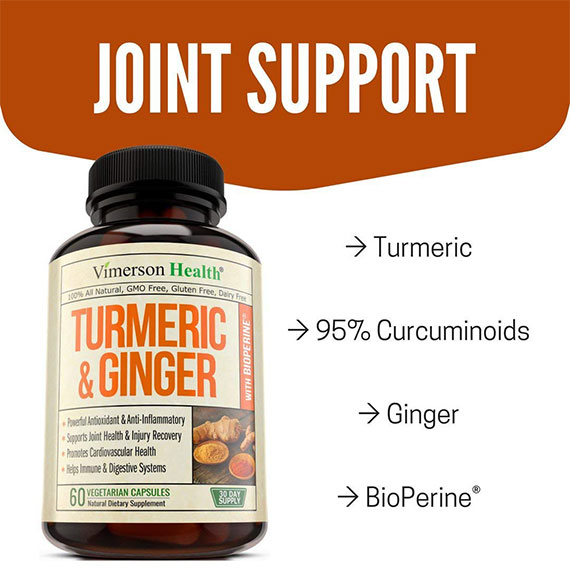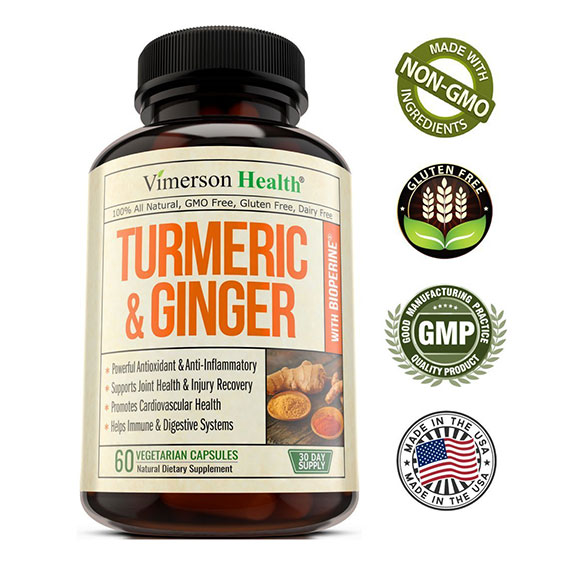For most people, especially those who enjoy cooking, ginger is just an herb.
If you are among those people, then it would be good to know that the chemicals that ginger contains, make it the number one anti-oxidant in the world of herbs.
What Is Ginger?
Ginger is the popular name of the perennial plant Zingiber officinale. It is believed that its homeland is ancient China. In our everyday life, ginger is present mostly at the table – as a spice used in various dishes.
Studies conducted in recent years give this herb a whole new place in our lives – as a health-enhancing supplement, which is no worse than the exotic-looking ginkgo biloba and cat’s claw.
Ginger contains 14 major bioactive components, its main properties being due to phenols known as gingerols. The root also contains quercetin, camphferol, rutin, Naringin, catechins and small amounts of curcumin. The total content of flavonoids per gram dry weight surpasses that of garlic, onion, black tea and papaya.
What Is It Used For And What Are The Health Benefits?
Ginger contains about 3% essential oils that give it its exotic flavor. Its aromatic oils contain various phytochemicals. The highest percentage is the content of zygibrine, and in lower concentrations contain bisabolin and farnesine. Medicine knows the different benefits of using ginger extracts.
Gastroenterology:
- Supports cases of dyspepsia and indigestion by locally increasing the blood flow in the digestive system;
- Accelerates the digestion of food in the intestines and their faster emptying
- Helps in cases of colic, nausea, vomiting. Especially effective in nausea caused by pregnancy and seasickness;
- Potential benefits in the prevention of colon cancer, but more research is needed;
- Possible enhancement of the thermal effect of the food.
Cardio-vascular:
- It is thought to block LDL cholesterol oxidation
- Increases levels of good cholesterol – HDL
- Potential benefits for lowering blood triglycerides
- Lowers blood cholesterol levels, which reduces the risk of developing atherosclerosis.
Locomotor system:
- It has significant anti-inflammatory properties, successfully regulating the markers of inflammation. Similar to aspirin, ginger suppresses pro-inflammatory prostaglandins and arachidonic acid metabolism, and the mechanism is associated with an effect on the COX-2 enzyme. This effect opens a second front of the anti-inflammatory effect by suppressing leukotrienes, which are inflammatory mediators produced in leukocytes
- Reduces muscle pain and inflammation in the muscles resulting from heavy workouts
- It suppresses the symptoms of osteoarthritis, although the withdrawal of anti-inflammatory, such as ibuprofen. Its effect is to suppress pain and regulate edema
- Ginger regulates pro-inflammatory cytokines such as tumor necrosis factor and interleukin-1 in cartilaginous tissue. At this stage, the properties to slow the development of arthritis are potential, as in vitro studies confirm these, but additional observations are needed on humans
- It inhibits proinflammatory cytokines in the brain cells
- In vitro, the suppressing effect on the kappa-B nuclear factor, which is an expression of inflammatory processes at the DNA level, has also been confirmed
Nervous system:
- There is evidence that ginger extract suppresses anxiety. Mechanisms have not yet been clarified. It is only known that the action is enhanced by co-administration with ginkgo biloba;
- It inhibits proinflammatory cytokines in the brain cells;
- Demonstrates improved memory and reduces response time in elderly people.
Immune system:
- It has a powerful antioxidant effect;
- It is believed that the substances contained in the ginger extract are among the strongest antibacterial agents. There is evidence of their killer action against bacteria that are resistant to a number of antibiotics.
Hormonal balance:
- Using 1000 mg of extract improves significantly strong menstrual pain;
- Reduces lipid peroxidation in testicles of impotent men, by up to 54%;
- Increases luteinizing hormone, quantity and quality of seminal fluid in impotent men;
- Potential Benefits of Increasing Testosterone in Long-Term Use, but at this stage only immature men have been investigated.
Possible Side Effects Of Ginger
The only possible side effects can be due to allergy to ginger or excessive usage. No other side effects of physical or emotional nature have been observed.
Who Shouldn’t Take Ginger And What Should It Not Be Combined With?
Ginger roots have been declared safe food by the Food and Drink Administration, which is responsible for standardizing and approving food products in the United States.
However, if you decide to take ginger extract, consult your doctor first. This applies to pregnant and nursing women as well as young children. It is not advisable to take ginger without a ginger consultation for people with gall stones, cardiovascular problems, brain tumors or other diseases of the brain tissues.
To improve digestion, ginger is successfully combined with digestive enzymes, mint, salvia and fennel seed. For a potent anti-inflammatory effect, it is recommended to combine ginger with glucosamine, bosvela, curcumine and methylsulfonylmethane.
Ginger should not be taken in conjunction with medications that have a similar effect, such as aspirin.
What Are The Needed Doses And How Is It Taken?
The recommended dose for common health effect ranges from 500 to 1000 mg of extract per day. The standardized ginger extract has a 5% concentration of aromatic oils.
The anti-inflammatory effect of ginger is demonstrated at doses of 2000 mg of extract per day for a minimum of 28 days.
Higher doses of at least 10 grams per day may have a positive effect on testosterone levels and estrogen regulation.
Which Supplements Contain Ginger?
Most often, ginger extracts are sold in their own, isolated form or as part of a complex antioxidant formula.
Sometimes it is used in enzyme digestive enhancers, and you can also find it in anti-inflammatory or staging complexes.
MeanMuscles Recommendation: Turmeric Curcumin With Ginger & Bioperine
Turmeric Curcumin With Ginger & Bioperine
Best Vegan Joint Pain Relief, Anti-Inflammatory, Antioxidant & Anti-Aging Supplement with 10mg of Black Pepper for Better Absorption.100% Natural Non-GMO




